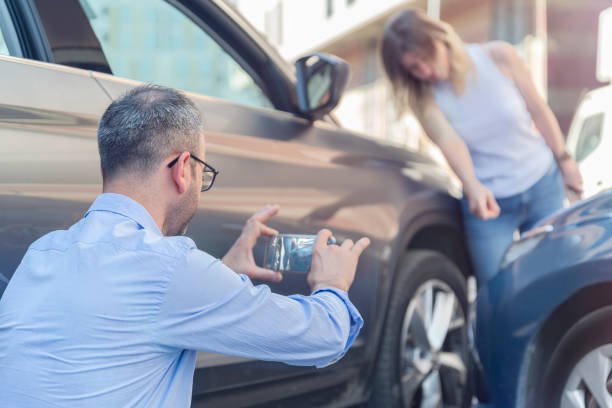Introduction
The rise of ride-sharing platforms like Uber and Lyft has completely transformed how people travel. For passengers, it’s all about convenience and affordability. For drivers, it’s a flexible way to earn money on their schedule. But along with the benefits of ride-share driving comes the responsibility of staying protected, especially when it comes to insurance. Regular car insurance isn’t enough when you’re driving for hire. You need specialized coverage, or you could end up in a financial mess after an accident. Let’s dive into everything you need to know about ride-share insurance and why it’s so essential.
What is Ride-Share Insurance?
Definition of Ride-Share Insurance
Ride-share insurance is a specialized type of car insurance policy designed for drivers working with ride-share apps like Uber, Lyft, or other similar platforms. Unlike personal auto insurance, which typically excludes coverage for commercial activities, ride-share insurance ensures you’re protected during all stages of your ride-share activities.
Differences Between Regular Auto Insurance and Ride-Share Insurance
Here’s the deal: regular auto insurance policies are meant for personal use only. If you’re driving for a ride-share platform, you’re considered to be engaging in commercial activity, and most personal auto policies won’t cover you in the event of an accident. Ride-share insurance fills this gap by providing coverage specifically tailored to the unique risks and needs of ride-share drivers.
Why Ride-Share Drivers Need Specialized Insurance
Gaps in Personal Auto Insurance Policies
One of the biggest misconceptions is that personal auto insurance will cover you no matter what. Unfortunately, that’s not true. Most personal policies explicitly exclude coverage for accidents that happen while driving for profit. If you’re caught without proper coverage, your insurance company could deny your claim or even cancel your policy.
Legal Requirements for Ride-Share Drivers
Depending on where you live, having appropriate insurance as a ride-share driver may be legally required. Many states have specific laws mandating that ride-share drivers maintain a certain level of liability coverage. Driving without it could result in fines, license suspension, or being barred from the platform.
The Phases of Ride-Share Driving and Insurance Coverage
Ride-share insurance works differently depending on what phase of driving you’re in. Let’s break it down:
Phase 1: App On, Waiting for a Ride Request
This is the trickiest phase for insurance coverage. Your personal auto insurance likely doesn’t apply, and ride-share companies usually provide only minimal liability coverage. This is where having ride-share insurance becomes critical.
Phase 2: En Route to Pick Up a Passenger
Once you’ve accepted a ride and are heading to pick up your passenger, most ride-share companies provide liability, collision, and uninsured motorist coverage. However, these protections might only kick in if you have proper insurance in place.
Phase 3: Passenger Onboard
This phase offers the most comprehensive coverage from ride-share companies, including liability and collision coverage. However, you’ll still need to meet the deductible, which can be quite high without supplemental ride-share insurance.
Types of Ride-Share Insurance Policies
Add-On Coverage to Personal Auto Insurance
Many insurance companies now offer ride-share endorsements or add-ons to existing policies. These are designed for part-time drivers and provide a cost-effective way to stay covered without purchasing a full commercial policy.
Commercial Auto Insurance for Full-Time Drivers
If you’re a full-time ride-share driver, you might want to consider commercial auto insurance. While it’s more expensive, it offers broader coverage and ensures you’re protected in almost any scenario.
Insurance Coverage Provided by Ride-Share Companies
Overview of Coverage From Popular Companies (e.g., Uber, Lyft)
Ride-share companies like Uber and Lyft typically provide a baseline level of coverage for their drivers, including liability insurance, collision coverage, and uninsured motorist protection. However, this coverage has limits and is often contingent on you having your own policy.
Limitations of Company-Provided Insurance
One major limitation of ride-share company insurance is the high deductible. For instance, Uber’s collision deductible is $2,500, meaning you’ll need to pay a significant amount out of pocket before coverage kicks in. Additionally, coverage only applies during certain phases of your drive.
What Happens Without Ride-Share Insurance?
Potential Consequences for Drivers
If you’re driving without proper insurance and get into an accident, you could face denied claims, hefty repair bills, and even lawsuits. In some cases, your personal auto insurer might cancel your policy altogether for failing to disclose your ride-share activities.
Impact on Passengers and Other Parties
Accidents involving ride-share drivers can also impact passengers and other parties. Without adequate coverage, injured parties might struggle to receive compensation, leading to legal disputes and financial hardship.
How to Choose the Best Ride-Share Insurance Policy
Assessing Your Driving Habits
Are you a part-time driver who logs a few hours a week, or are you hustling full-time? Your driving habits should determine the type of coverage you need.
Comparing Policy Costs and Benefits
Not all ride-share insurance policies are created equal. Take the time to compare premiums, deductibles, and coverage limits to find the best option for your budget and needs.
Cost of Ride-Share Insurance
Factors That Affect Premium Costs
Several factors influence how much you’ll pay for ride-share insurance, including your location, age, driving history, and the type of coverage you choose.
Saving Money on Ride-Share Insurance
You can reduce your premiums by maintaining a clean driving record, bundling policies, and shopping around for discounts.
Tips for Ride-Share Drivers to Stay Covered
Regularly Review Your Policy
Your needs may change over time. Regularly reviewing your policy ensures you’re always adequately protected.
Always Notify Your Insurer About Ride-Share Activities
Being upfront with your insurer about your ride-share activities prevents surprises in the event of a claim.
Common Myths About Ride-Share Insurance
“Personal Auto Insurance is Enough”
This myth can lead to financial ruin. Personal policies almost never cover ride-share activities.
“Ride-Share Companies Cover Everything”
While ride-share companies provide some coverage, it’s far from comprehensive and doesn’t eliminate the need for supplemental insurance.
Real-Life Examples of Ride-Share Insurance Claims
Lessons Learned From Other Drivers’ Experiences
Hearing about real-life scenarios—like drivers left with thousands in repair costs due to inadequate insurance—can be a wake-up call for many.
State-Specific Rules for Ride-Share Insurance
Key Differences Across States
Insurance requirements for ride-share drivers vary widely by state. Some states require additional endorsements, while others have strict liability minimums.
Importance of Understanding Your Local Laws
Knowing your state’s regulations ensures compliance and prevents legal trouble down the road.
Future Trends in Ride-Share Insurance
Innovations in Coverage for Ride-Share Drivers
Usage-based insurance, app-integrated policies, and pay-per-mile plans are making ride-share insurance more flexible and affordable.
Impact of Autonomous Vehicles on Ride-Share Insurance
As self-driving cars become a reality, the insurance industry will need to adapt to cover new risks and liabilities.
Conclusion
Driving for a ride-share company can be a great way to earn money, but it’s crucial to protect yourself with the right insurance. Ride-share insurance bridges the gap between personal and commercial policies, ensuring you’re covered during all phases of your drive. Don’t take shortcuts when it comes to your coverage—investing in the right policy is an investment in your future.
What Does Ridesharing Mean in Car Insurance?
Ridesharing in car insurance refers to the specific type of coverage required for drivers who use their personal vehicle to provide rides for companies like Uber, Lyft, or other similar platforms. This type of insurance is tailored to address the unique risks that come with using your car for commercial purposes, such as picking up passengers, driving to destinations, and being on the clock for a ride-share company. Regular auto insurance typically doesn’t cover activities related to ridesharing, so drivers need specialized coverage to fill this gap.
Does Being an Uber Driver Affect Your Car Insurance?
Yes, being an Uber driver can affect your car insurance. Personal auto insurance policies generally do not cover accidents or damages that happen while driving for a ride-sharing service. Insurance companies may classify ride-share driving as a commercial activity, which requires a different type of coverage. In many cases, drivers will need to purchase ride-share insurance or add an endorsement to their personal policy to ensure they’re properly covered during all stages of a ride-share trip.
What Insurance Do I Need for Uber Driving?
As an Uber driver, you need specialized insurance to ensure you’re covered. There are several options available:
- Personal Auto Insurance with a Ride-Share Endorsement: This add-on to your existing personal policy covers you during periods when you’re driving for Uber.
- Commercial Auto Insurance: This is a more extensive option for full-time Uber drivers who need coverage that goes beyond personal use.
- Uber’s Insurance Coverage: Uber provides basic insurance while you’re driving for the platform, but it only applies during specific phases of the trip (e.g., when you’re en route to pick up a passenger or have a passenger in your car).
It’s important to note that Uber’s coverage may have exclusions or high deductibles, so many drivers opt for supplemental ride-share insurance for added protection.
What is the Best Rideshare Insurance for Uber?
The best rideshare insurance for Uber drivers depends on your specific needs. Some of the top providers for ride-share insurance include:
- Progressive: Known for offering a comprehensive ride-share endorsement that can be added to your personal auto policy.
- Allstate: Offers a ride-share add-on with coverage during the “app on” phase, covering both personal and business use.
- Geico: Offers affordable ride-share policies and is a great option for part-time drivers.
- State Farm: Offers a ride-share policy that extends your personal coverage during the gaps in Uber’s insurance.
It’s essential to compare policies and find one that balances cost with the level of coverage you need.
What is a Rideshare Driver?
A rideshare driver is someone who uses their personal vehicle to transport passengers for a ride-sharing service, such as Uber or Lyft. These drivers are typically independent contractors, meaning they are not employed directly by the ride-sharing company but work through its app to accept ride requests and provide transportation services. Rideshare drivers are responsible for their own vehicle maintenance, insurance, and driving safety, but they also benefit from the flexibility of choosing their own hours and earning money based on the number of rides they complete.


